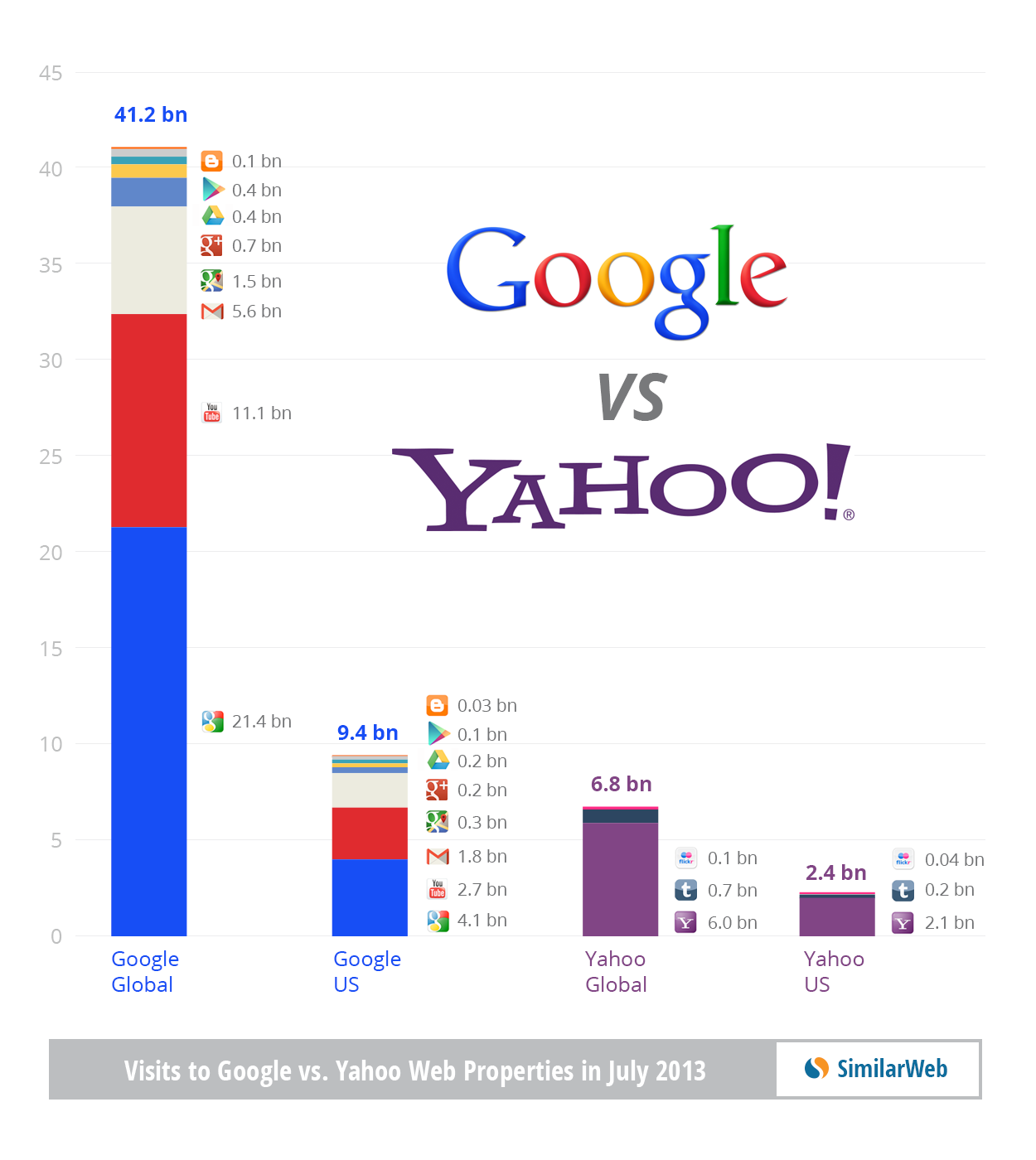The Independent's journalism is supported by our readers. When you purchase through links on our site, we may earn commission.
Yahoo or Google? Web supremacy depends on how you measure it
Although measuring traffic online isn't an exact science, whether you choose to measure unique visitors or each hit makes a big difference.

Recent figures released by web analytics firm ComScore were a shot in the arm for Yahoo, showing that for the first time since 2011 the company had knocked Google off the top spot for monthly web traffic in the US.
ComScore’s figures, which are often used by advertisers to gauge how much screen real-estate is worth, put Yahoo’s collective web properties just slightly ahead of Google’s. With the former taking in 196.6 million visitors compared to Google’s 192.3 million.
However, it seems that when it comes to measuring a website’s popularity, not all metrics are equal and similar analysis from other firms paints a different picture.
Tel Aviv-based SimilarGroup and their web measurement tool SimilarWeb have released their own comparison of the two companies, showing that globally and within the US and UK Google’s properties are still far ahead of Yahoo's.
The differences between ComScore and SimilarWeb’s numbers stems from how hits are counted: ComScore counts unique visitors rather than unique views, meaning that return visits by web users to Google properties were not counted.
Using SimilarWeb’s figures Google soared ahead of Yahoo, with just the search-giant’s US data (9.4 billion views) beating Yahoo’s global traffic (6.8bn). And on global terms, Google is undoubtedly still the champion with 41.2 billion views accumulated across multiple properties: Google Search, YouTube, Gmail and many others.
Whether the figures from ComScore or SimilarWeb are more reliable is not really the right question to ask, as the different measurements reflect different types of engagement. Whilst Yahoo and Google’s reach is similar (as shown by ComScore), SimilarWeb’s figures capture the sheer ubiquity of Google online – we return to it again and again for our most basic tasks online.
SimilarWeb have also provide the Independent with a glance into UK figures for the two companies, revealing a picture similar to the US. Google’s total UK visits hit 1,886m, compared to Yahoo’s properties (including Tumblr and Flickr) collecting 318 million views. To put this in perspective, Facebook’s traffic comes neatly between the two, with around 720m views in July (excluding mobile).
These figures are also interesting as they show that although the UK often feels quite closely involved in the US tech world, for the big companies we only represent 5 per cent of their global traffic.

Join our commenting forum
Join thought-provoking conversations, follow other Independent readers and see their replies
Comments
Bookmark popover
Removed from bookmarks